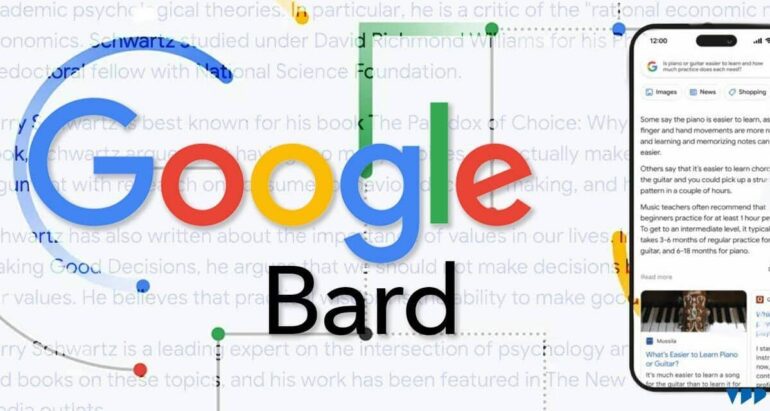TL;DR:
- Google Bard, an AI interface, competes in the generative AI race.
- OpenAI’s ChatGPT leads the industry.
- Bard’s capabilities include web-sourced responses and multi-language support.
- Upgraded to PaLM 2, offering improved skills and coding capabilities.
- Integration with Google apps enhances functionality.
- Scrutiny arises as Bard generates misinformation.
- The White House initiates a trust and safety evaluation.
- Legal action against Google over data usage.
- Ethical concerns persist regarding data use for AI training.
Main AI News:
In the ever-evolving landscape of Artificial Intelligence (AI), Google Bard is making strides to secure its place among the top contenders. OpenAI’s ChatGPT has undoubtedly been a trailblazer in the race for generative AI, with businesses worldwide, including those in India, harnessing its capabilities to engage with customers and improve productivity. But can Google Bard, amidst growing scrutiny over AI ethics, emerge as the preferred choice?
As of now, Bard finds itself trailing behind ChatGPT and other AI models developed by Meta and various competitors. However, it’s essential to understand what Bard brings to the table. This AI gem serves as an interface to large language models (LLMs), empowering users to collaborate seamlessly with generative AI.
One of Bard’s distinguishing features is its ability to tap into web resources, ensuring it delivers fresh and high-quality responses. Businesses can leverage Bard to supercharge productivity, expedite ideation processes, and stimulate curiosity within their teams.
A pivotal moment in Bard’s journey occurred in May when Google transitioned it to PaLM 2, a vastly superior LLM model. This upgrade unlocked a slew of advancements, including enhanced mathematical and reasoning capabilities, along with the aptitude for coding. Coding has become a popular endeavor among Bard users, and its reach now extends to more than 230 countries and territories.
What’s more, Bard is becoming linguistically versatile, accommodating over 40 languages, including nine Indian languages such as Hindi, Tamil, Telugu, Bengali, Kannada, Malayalam, Marathi, Gujarati, and Urdu. This adaptability ensures that Bard can cater to a diverse user base, fostering global collaboration and innovation.
But Bard’s evolution doesn’t stop there. It seamlessly integrates with various Google apps and services to provide even more valuable responses. The “Google it” feature has been fine-tuned to cross-verify Bard’s answers, and its functionalities have been expanded to cover a broader spectrum of user needs.
Take, for example, trip planning to the Grand Canyon—a task that typically involves juggling multiple tabs. With Bard, users can now simply ask it to find suitable dates from Gmail, access real-time flight and hotel information, provide Google Maps directions to the airport, and even curate YouTube videos showcasing activities at the destination—all within a single conversation.
However, as Bard gains prominence, it faces increased scrutiny. A recent report by NewsGuard, a leading authority on rating news and information websites, raised concerns about both ChatGPT and Bard’s propensity to generate news-related falsehoods and misinformation. Their analysis revealed an alarming likelihood of false claims on significant news topics, with ChatGPT generating 98 out of 100 myths and Bard producing 80 out of 100.
This issue has not gone unnoticed, as the White House initiated a comprehensive trust and safety evaluation of large generative AI models. The objective is to involve thousands of community partners and AI experts in evaluating these models independently and addressing any issues that may arise.
Despite these challenges, Google remains committed to improving Bard’s accuracy and reliability. Users are encouraged to provide feedback to enhance the chatbot’s performance.
In July, Google faced legal action in the form of a class-action lawsuit, alleging data scraping without user consent and copyright violations in training its AI tools. The lawsuit contended that Google had surreptitiously accumulated a vast digital footprint of Americans’ online activities to fuel its AI endeavors.
Google responded by updating its privacy policy, clarifying its use of publicly available data to train AI models. This move prompted concerns among critics, who question the ethical implications of such practices in the development of large language models.
Conclusion:
Google Bard’s journey in the generative AI market showcases its potential but also highlights significant challenges. While it offers valuable features and integration with Google services, concerns over misinformation and data usage ethics demand attention. The market must tread carefully, focusing on responsible AI development and transparency to maintain trust and foster innovation.

